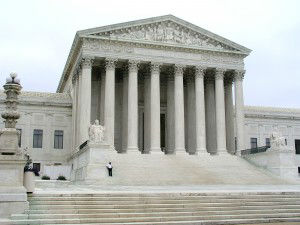The U.S. Supreme Court recently agreed to consider a case involving a municipal ordinance authorizing law enforcement to inspect hotel guest registries without obtaining a warrant. The ordinance at issue was passed by the City of Los Angeles; however, more than 70 other states, counties, and cities across the country have similar laws in place to locate fugitives and combat prostitution, drug dealing, and other crimes.
The Facts of the Case
The ordinance in Patel v. City of Los Angeles requires hotel and motel operators to collect and record detailed information about their guests in either paper or electronic form. The records must contain: the guest’s name and address; the number of people in the guest’s party; the make, model, and license plate number of the guest’s vehicle if the vehicle will be parked on hotel property; the guest’s date and time of arrival and scheduled date of departure; the room number assigned to the guest; the rate charged and the amount collected for the room; and the method of payment.
While the plaintiffs, which include several hotel and motel operators in the Los Angeles area, do not challenge the above record-keeping requirements. They do, however, contest the ordinance’s warrantless inspection requirement, which states that hotel guest records “shall be made available to any officer of the Los Angeles Police Department for inspection,” provided that, “[w]henever possible, the inspection shall be conducted at a time and in a manner that minimizes any interference with the operation of the business.” Failure to comply with an officer’s inspection demand is a misdemeanor, punishable by up to six months in jail and a $1,000 fine.
Because no prior court authorization is required, the plaintiffs contend that the ordinance is facially invalid under the Fourth Amendment. By a vote of 7-4, the Ninth Circuit Court of Appeals agreed, concluding that the law was unconstitutional in that it authorized inspections of the motel records without affording an opportunity to obtain prior judicial review.
“The Supreme Court has made clear that, to be reasonable, an administrative record-inspection scheme need not require issuance of a search warrant,” the court explained, “but it must at a minimum afford an opportunity for pre-compliance judicial review.”
The Issues Before the Court
The U.S. Supreme Court has agreed to consider two questions. The first is whether facial challenges to ordinances and statutes are permitted under the Fourth Amendment. As noted by the City of Los Angeles, the Ninth and Sixth Circuits have reached fundamentally different conclusions as to whether such a challenge to an ordinance can be asserted.
If such suits are permissible, the Court will also determine whether a hotel has an expectation of privacy under the Fourth Amendment in a hotel guest registry where the guest-supplied information is mandated by law and an ordinance authorizes the police to inspect the registry. If so, the next question is whether the ordinance is facially unconstitutional under the Fourth Amendment unless it expressly provides for pre-compliance judicial review before the police can inspect the registry.
Oral arguments have not yet been scheduled. However, we will be closely following the progress of this case as it proceeds and encourage our readers to check back for updates. You can also find additional coverage on the U.S. Supreme Court’s 2014-2015 docket on the Scarinci Hollenbeck Constitutional Law Reporter.
For more information about this case or the legal issues involved, we encourage you to contact a member of Scarinci Hollenbeck’s Government Law Group.

